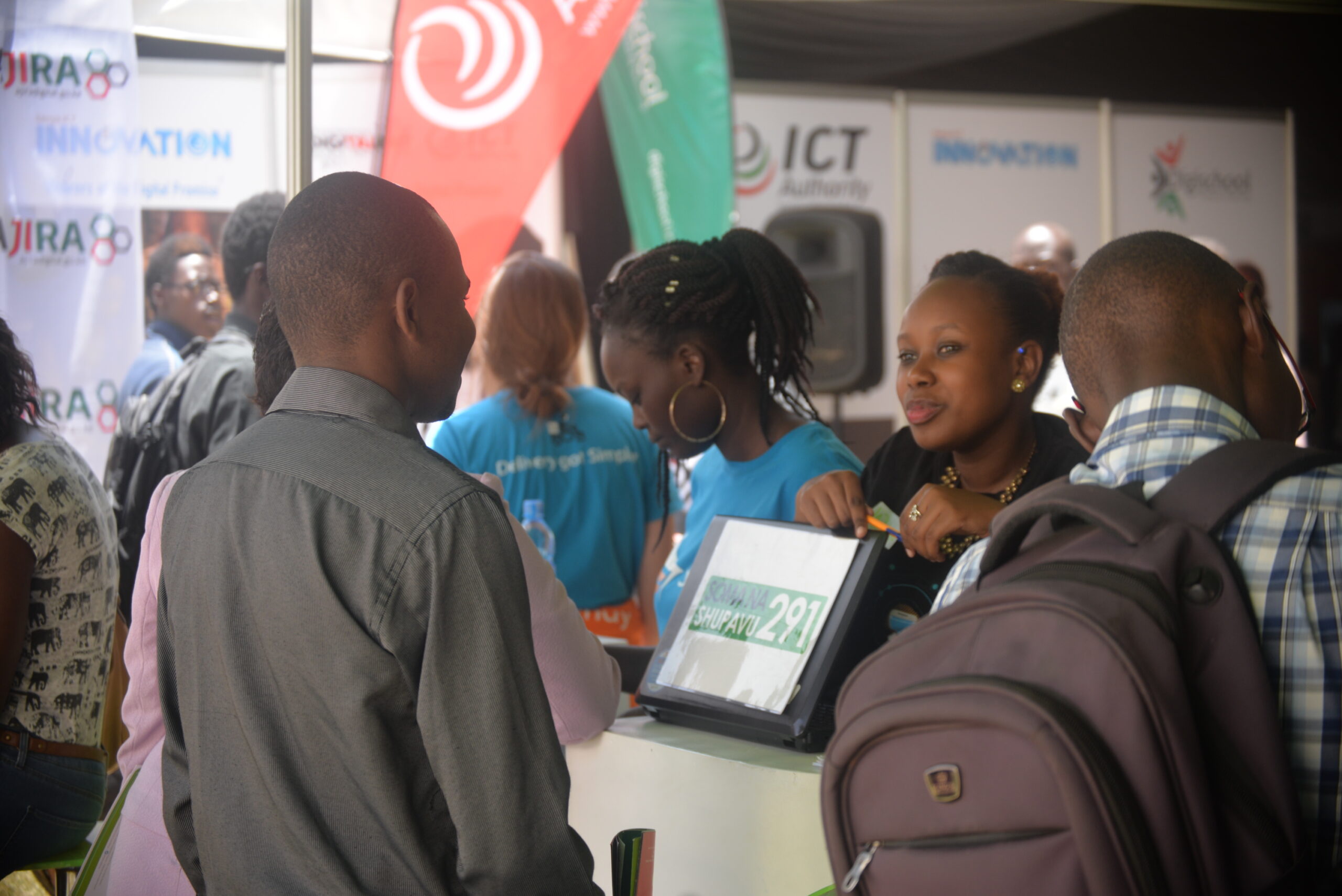Nairobi Innovation Week
By Peter Thomas
The 3rd edition of the Nairobi Innovation Week began on March 6th 2017 attracting over 4000 delegates at the University of Nairobi Main grounds.
This was a huge turnout compared to last year’s edition which was launched by President Uhuru Kenyatta and attracted over 39 speakers and 2500 delegates across 5 nationalities.
The opening ceremony was graced by various individuals from both government and private sector both calling for the need to invest finances and time towards innovation so as to help improve the lives of Kenyans in health, agriculture and financial services.
In his opening remarks, Cabinet Secretary for ICT, Joe Mucheru thanked the University of Nairobi for organizing the event, and for constantly spearheading and leading other partners in shaping the event to a global scale.
The event seeks to bring together partners from government, private sector, development partners and research centers to provide a platform for showcasing and encouraging innovation, networking and sharing knowledge.
This year’s corporate and strategic partners included Safaricom Limited, Barclays Bank, Kenya Revenue Authority, KCB Bank UNICEF, Samsung among others.
Exhibitors were given 3 days to showcase their various innovations and also network with delegates attending the event so as to exchange ideas on how to improve on their innovations.
A group of experts from Kenya, Finland, Israel and other countries joined by Startups from Finland and Israel engaged deeply on what makes Innovation ecosystems work.
In order for Kenya to achieve her Sustainable Development Goals (SDGs), innovation should be among the key pillars to drive this agenda forward. It is only through forums such as The Innovation Week that ideas and innovations can be shared among like-minded individuals to push forward towards achieving the SDGs.
Universities play a key role in development and capacity building in the society. Strengthening academia through research and new innovative ideas is key to achieving a business oriented society where we will also eliminate the problem of unemployment facing many Kenyan youth.
Innovation can inspire useful mechanisms to solve day to day challenges such as access to education in rural areas, eradicating neglected diseases, access to clean water and hunger reduction. Thus the need to build extensive innovation capacities remains a priority for the Kenyan government.


